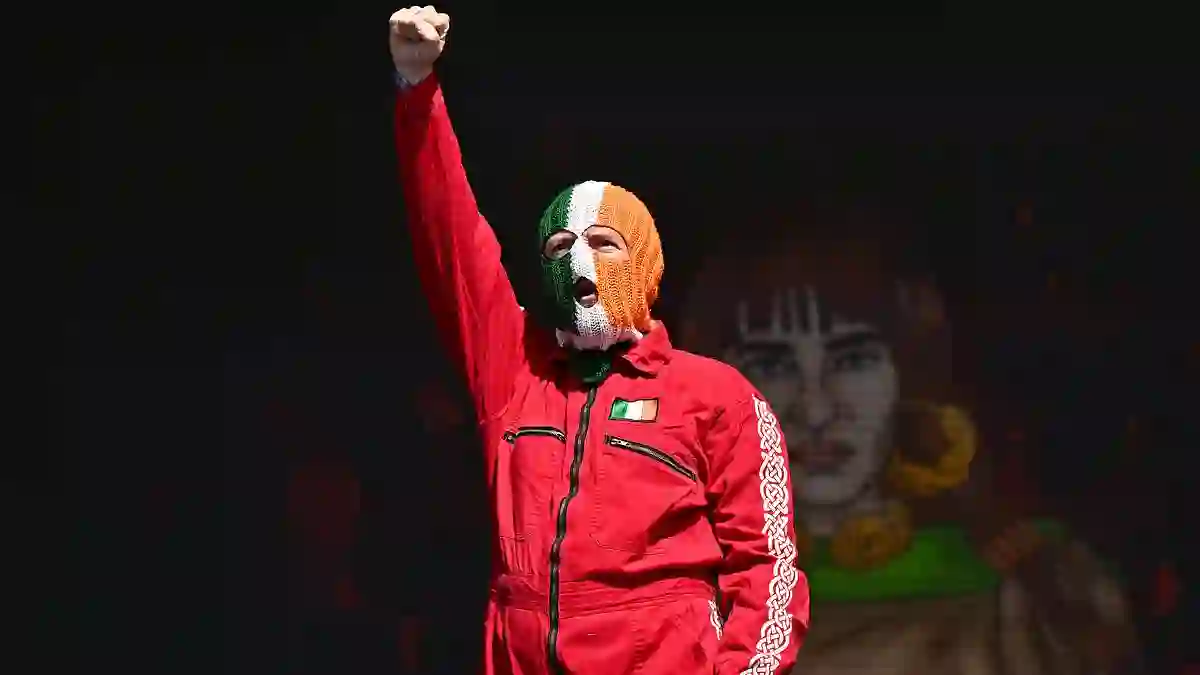The energy at Glastonbury’s West Holts stage on Saturday afternoon was electric—but not for the reasons many expected.
I was drawn there after a provocative Instagram post from West Belfast hip-hop trio Kneecap, who warned fans to show up early for their set.
With just hours before they took the stage, tensions were already high, especially after one of the band members, Liam O’hAnnaidh, faced terror-related charges.
Many critics had demanded they be banned from the festival entirely, so anticipation for their performance was mixed with controversy.
Arriving at the Scene: A Crowd, But Not for Kneecap
When I arrived around 2:30 pm, the 30,000-capacity area was packed—but surprisingly, most of the energy was not for Kneecap.
Instead, the crowd was responding fervently to punk duo Bob Vylan, who was performing at the time.
The air was thick with Palestinian flags, and Vylan’s frontman was delivering a fierce, incendiary speech targeting the music industry, accusing certain executives of trying to censor Kneecap.
His words took a darker turn, with chants that shocked everyone around me. The audience loudly echoed cries of “Free Palestine,” and even shouted, “Death to the IDF.”
Shock and Unease in the Midst of the Crowd
As someone who has covered Glastonbury for more than 20 years, I have rarely felt unease—but this was different.
I was frozen in place, caught between disbelief and worry about the volatile atmosphere. No one around seemed to mind or push back against the hateful rhetoric.
Instead, the crowd seemed energized by it, which was deeply unsettling.
The scene felt more like a political rally than a music festival moment, and frankly, I feared for the safety of everyone there.
Was There a Coordinated Plan Behind the Scenes?
One can’t help but wonder if Kneecap, frustrated that the BBC refused to live-stream their set, timed their Instagram post intentionally to ensure their fans were already in place for Bob Vylan’s live-broadcasted performance.
The two acts have a history of camaraderie, sharing jokes about crowd-surfing incidents and social media exchanges.
It’s possible they collaborated to maximize the exposure of this highly charged, anti-Semitic message on a major platform.
Glastonbury’s Reputation and the Call for Action
Bob Vylan’s on-stage outburst has cast a dark shadow over Glastonbury and placed the BBC under intense scrutiny.
For years, the festival has been a symbol of music, peace, and unity—but this incident exposes a dangerous undercurrent threatening to hijack that legacy with hate speech.
It’s now on Sir Michael Eavis, the festival’s founder, to acknowledge the severity of the situation and take firm action.
If the festival doesn’t address this openly and decisively, it risks losing what made it a beloved institution for decades.
